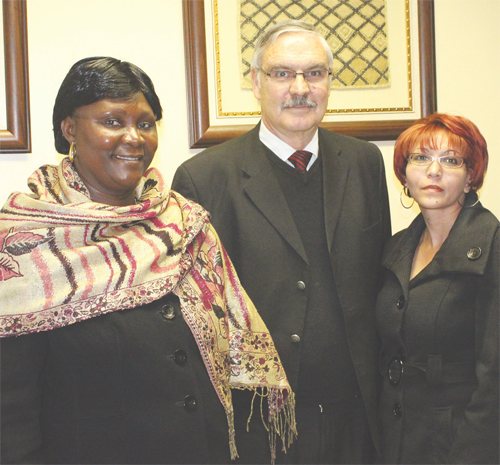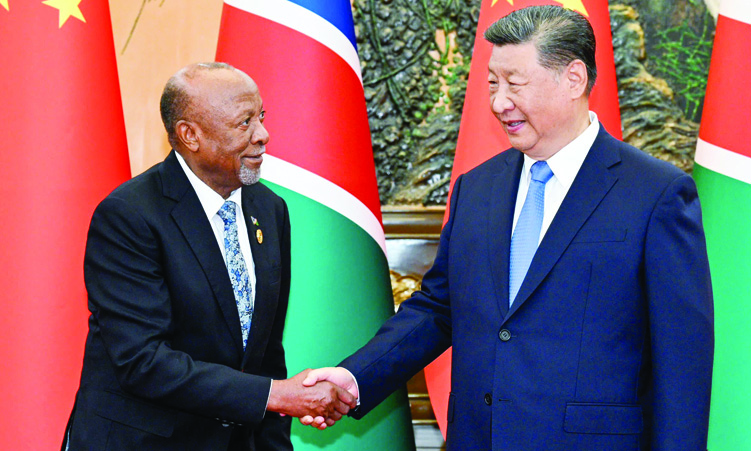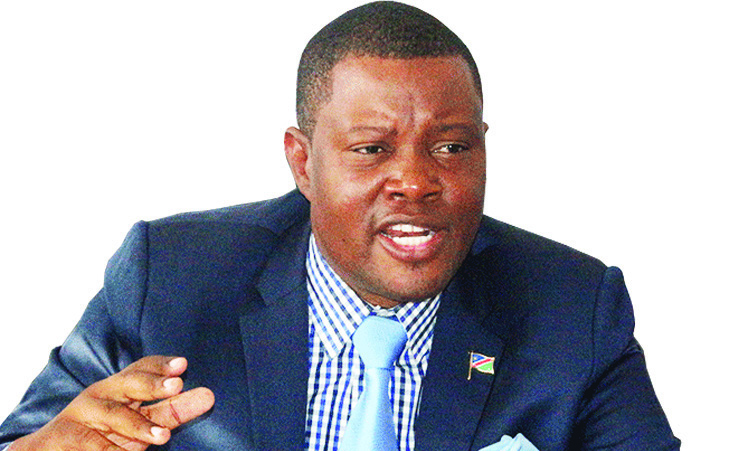AN innings of nearly 30 years in the front line of the battle against crime in Namibia has come to an end for veteran prosecutor Danie Small.
This week will be the first since its creation at Namibia’s independence in 1990 that the Office of the Prosecutor General will not have Small in its team. His long career as a prosecutor ended on Thursday last week, when he retired after 29 years as a staff member of the Office of the Prosecutor General and its pre-independence predecessor.
Having reached the age of 60 in June, Small decided not to ask for an extension of his service as the second in command of the Office of the Prosecutor General. But while he is retiring as a public servant, he is not planning to stop working yet.
That should not be surprising. Although he has turned 60 and has had a head of grey hair for many years, the lean Small looks much younger than his age and still moves with the energy and speed of someone much younger. In his work in court he was a tireless fighter. He does not appear to have become tired now.
“I want to make a contribution on another level,” Small says. “I think I’ve now done my part here.” He is considering joining the ranks of Namibia’s advocates, where a son of his is also practising law, or he could move into lecturing.
He says he has decided to retire as Chief Public Prosecutor – a position in which he has served as the right-hand man of Prosecutor General Martha Imalwa since November 2010 – because he feels that the Office of the Prosecutor General could benefit in the long run if someone else takes over the responsibilities he has been shouldering for many years.
There are younger people among the PG’s staff who can take over from him and tackle the bigger sort of cases that had been his responsibility, Small says.
Small will be sorely missed, Imalwa indicated during a meeting with members of her staff on Friday.
“Small has been a dedicated soldier who always had his weapon, ammunition in the barrel of his gun, ready to fight,” Imalwa said. “Not fighting to kill, but fighting to ensure that Namibia is safe, that Namibian children are safe, from that scourge we call crime.”
She paid tribute to Small as a hardworking professional who was always ready to take on any work assigned to him.
“You should be proud as a Namibian, my brother,” Imalwa said. “Because you have made a contribution.”
Small helped to build Namibia’s jurisprudence through the many cases in which he was involved, she said. His name would live on through those court decisions, which would continue to serve as precedents for the current and future generations of lawyers in Namibia.
“I stayed where I was because I was doing what I loved. It’s a great advantage to do something you like,” Small says.
With his choice of a career in law Small followed in the footsteps of his father, who was a magistrate in Namibia before independence.
Small was born at Maltahöhe in June 1954. After completing his schooling, he joined the then Department of Justice at the bottom of the ladder as a magistrate’s court clerk.
While studying law at Potchefstroom University in South Africa, Small worked at magistrate’s courts in Namibia during his student holidays. After doing two years of compulsory military service, during which he was a military law officer, he was first appointed as a public prosecutor at the end of 1981.
He worked as a prosecutor until he went into private practice during the latter part of 1982. Small was attached to the law firm Stern and Barnard as an article clerk and later as an attorney until October 1985, which was when he took up a post as a State advocate in the office of the Attorney General, who was responsible for criminal prosecutions in pre-independence Namibia. Small served under two former Attorneys General, Tielman Louw and Estienne Pretorius, before Imalwa’s predecessor, Hans Heyman, was appointed as independent Namibia’s first PG in 1990.
By 1995, Small was promoted to one of the Deputy Prosecutor General positions under Heyman. He continued to serve in that position after Imalwa’s appointment as PG with effect from the start of 2004, and rose higher still with his appointment as Chief Public Prosecutor in November 2010.
Small says the most useful lesson he learned during his career is about the importance of proper preparation. For a prosecutor – or any other lawyer – preparation is key, and that is something that has helped him to successfully face opponents in court who were highly regarded in their field, he says.
That is so because nobody can change the facts; however, the facts can do nothing to assist a prosecutor or other lawyer’s case if he or she does not know about those facts, he says.
One of the cases in which he represented the State still has a special resonance for him, he says. In that case, the then Judge Bryan O’Linn spelled out the functions and responsibilities of prosecutors as being representatives of society, of the people, and of victims of crime.
That was what Danie Small also tried to be when he prosecuted scores of offenders during his career and tried to ensure that they faced justice.
Stay informed with The Namibian – your source for credible journalism. Get in-depth reporting and opinions for
only N$85 a month. Invest in journalism, invest in democracy –
Subscribe Now!






